Hindsight 2020: Professors predicted what Trumpism would look like. Here's what they got right

After Donald Trump won the presidential election in 2016, people in liberal areas were in shock – and wondering what a Trump presidency would mean for the country.
A week after the election, we asked academics to write their thoughts. Today, with hindsight being 2020, we revisit the most prescient of those pieces.
Three themes emerged, two of which seemed alarmist at the time: a trade fiasco with China and brutal immigration policies. But the third theme was resistance; they said the people would rise up.
Below are sections from these essays, with historical notes to jog your memory of what actually transpired.
Professor Mark C. Carnes, History
Barnard College (Columbia University)
The temptation for any president, but especially for Trump, is to assume that the vast powers of the presidency entitle him to ignore Constitutional constraints. Congress, and a Trump-packed Supreme Court, will likely accede to his will—at least initially.
But sooner or later, Trump, having effortlessly squashed all political rivals, will go too far. Someday he will encounter politicians who take him seriously—and devise plans carefully. After he’s been trapped and cornered during a Constitutional crisis, Trump will likely thrash around, causing considerable harm—to the Constitution especially.
[Hindsight 2020: Trump is about to get a third Supreme Court nominee, Amy Coney Barrett, on the bench.]

Professor Daniel Chirot, International Studies
University of Washington
NATO is in big trouble. No one in Europe or East Asia will trust us, so this gives Russia and China a stronger hand. But if Trump starts a trade war with China, that could unchain a world depression, and China would be hurt even more than us. That would make it more dangerous.
Mexico will have a hostile relation with us, and that will make it even harder to control the drug traffic. A wall would be of no help.
[Hindsight 2020: Trump’s relationship with Mexico’s president is one of mutual respect. This relationship has not meant less violence in Mexico, however, where more than 30,000 people were killed in 2017 due to the drug trade, according to the BBC – triple the murder rate since 2006.]
Poor people and minorities will be badly hurt as there will be less money to help them, and more overt discrimination.
Sponsored
[Hindsight 2020: Hate groups have reached a record high during the Trump presidency, according to the Southern Poverty Law Center.]
Curtailing of voting rights for minorities will increase.
[Hindsight 2020: After this essay was published, it was revealed that Russia tampered with the 2016 elections, although Congressional reports found no evidence that Trump was involved.
At a local level, voter suppression continues. The success of Shelby v. Holder (2013) allowed formerly Jim Crow states to implement racist laws that make it more difficult for Black and low income people to vote, typically by reducing the number of polling. The high court decided this before Trump was in office, but the ripple of this decision continues.
Separately, Louis DeJoy, Trump’s appointee to head the U.S. Postal Service, had mailboxes and sorting machines removed from post offices. That slowed the mail considerably – even after some machines were returned after a public uproar.
Sponsored
Meanwhile, Republicans pushed for mail-in ballots in Pennsylvania not to be counted after Election Day. The Supreme Court, absent Ruth Bader Ginsburg, tied on this question and therefore the ballots will be counted.]
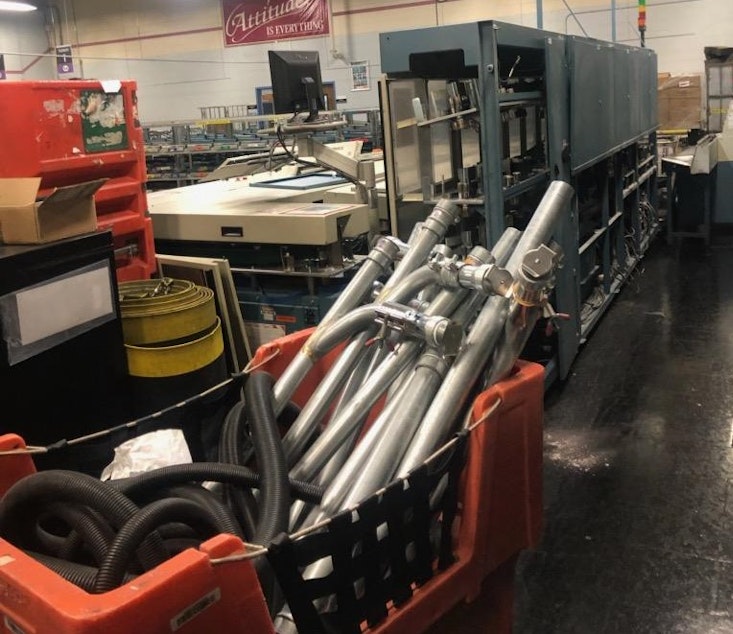
Professor Yu-chin Chen, Economics
University of Washington
A Trump administration with a compliant Republican Congress will most likely cause grave domestic economic wounds – catastrophic regressive tax cuts, unpaid-for spikes in military spending, a mauled safety net, an erosion in the efficacy of the Federal Reserve (assuming it survives), and tens of millions losing health insurance. Same for the global economy.
Sponsored
[Hindsight 2020: Roughly 14 million people have lost their health insurance since Trump took office. This includes 2.3 million who lost insurance between 2016 and 2019, and then 12 million who lost employer-sponsored insurance during the coronavirus pandemic.]
Taking a knife to international trade will arrest the great recent triumph in economic history – the emergence of hundreds of millions of the world’s poor from grinding poverty.
[Hindsight 2020: This year, global extreme poverty is expected to rise for the first time in over 20 years, according to the World Bank. The World Bank attributes this to climate change and the disruption of Covid-19.]
Misguided economic policy will make us poorer and more insecure than we would have been. But the critical story of election night makes all of this just a detail.
The profound issue facing us is whether we as a people can find a way to tolerate each other, to stay out of gratuitous wars, to control our tribal and tyrannical impulses, to manage our collective resources as well as the powerful yet potentially destructive explosives and AI/bio-systems we so speedily invent.
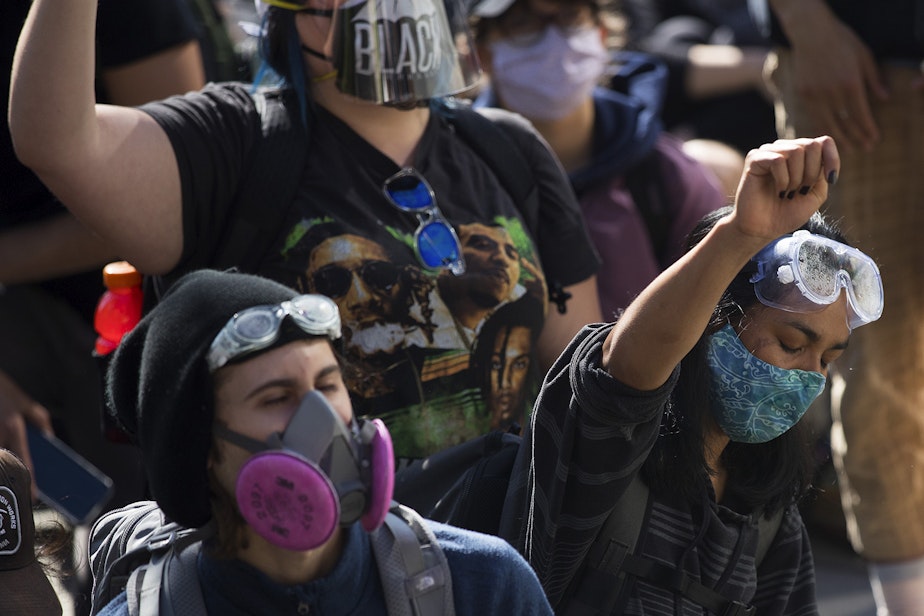
Professor Keeanga-Yamahtta Taylor, African American Studies
Princeton University
Trump and his hangers-on have declared Black Lives Matter to be a terrorist movement and a terrorist organization. That is dangerous. Trump has declared himself the law and order candidate in direct defiance of the BLM movement.
So we are faced with a challenge. It is not an insurmountable challenge, but one that requires us to immediately begin to strategize and intensify our collaboration with the many different groups of people who have been organizing…
The reality is that there are important struggles we can build on. We are not starting from scratch. But there is no time to spare. We have to confront this menace in the streets with demonstrations, pickets and protests. We should begin with the inauguration in January. Today we can despair and be angry. But in the coming days, we must begin to map out the contours of our struggle against Trump and Trumpism.
[Hindsight 2020: The day after Trump's inauguration saw the Women's March, an international protest responding to the president's misogynistic comments. Many of those women spent the following years writing letters to others, encouraging them to vote, and calling lawmakers.
A racial reckoning reverberated around the country in May 2020, following the killing of George Floyd, a Black man in Minneapolis by police. Almost every day since has seen more protest, and acute pressure on local lawmakers to "defund the police."]
Professor Megan Ming Francis, Political Science
University of Washington
Students who are undocumented and scared and don't know what is going to happen to their families; students who have been sexually assaulted and now feel as if our political system legitimizes such acts of violence; and Muslim students who have incurred heightened levels of discrimination over the past few months…
For those of us who are privileged, we must get to work. History teaches us that people have power and that when we harness that power through organizing—we can shift the conversation and the entire operation of political institutions. I feel broken but I also feel hopeful about the level of organizing and activism I’ve witnessed the past few days.
[Hindsight 2020: On his first day in office, Trump instituted a so-called Muslim ban.
The ban expanded this year. According to The New York Times, more than 12,300 potential immigrants in the next year will not be able to resettle, find work or reunite with their families in the U.S.]
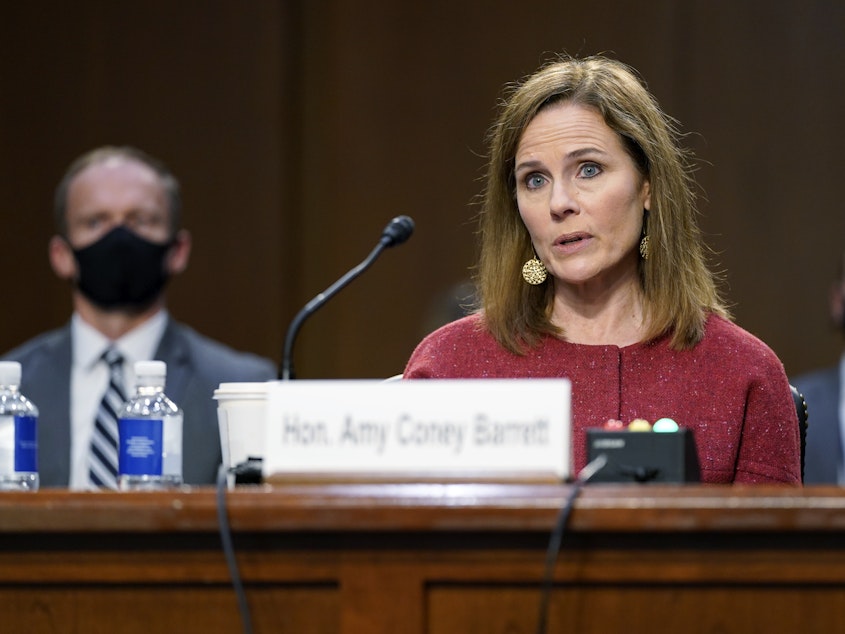
Professor Katherine Beckett, Sociology
University of Washington
President Trump will be in a position to reverse many gains at the federal level, including efforts to investigate and deter police misconduct, curtail the use of solitary confinement and private prisons, and redress racial inequities in drug sentencing. His judicial appointments also have the potential to substantially undermine the 4th Amendment, which is already on life support, and notably expand the use of capital punishment.
[Hindsight 2020: Trump has made a major impression on the federal justice system, having appointed two Supreme Court justices – Neil Gorsuch and Brett Kavanaugh – with a third appointment, Amy Coney Barrett, on the way. He has also appointed nearly 200 judges to federal courts with lifetime positions.]
Professor Saadia Pekkanen, International Studies
University of Washington
The U.S. is already marked as a declining power in Asia. In a recent book I cover how the major powers of Asia like China, Japan, and South Korea have been preparing for a post-American – and frankly for that matter a post-Western – world. The outcome of the U.S. election will further diminish U.S. influence in Asia.
[Hindsight 2020: Tariffs and retaliatory tariffs between the U.S. and China “significantly hurt the American economy,” according to the Brookings Institution.]
This had already begun to decline under the divisive campaign rhetoric in the 2016 election, which roused widespread concerns about the stability and durability of U.S. alliances around the world. In the aftermath of the election and even if President-elect Trump stays the course, Asian powers simply do not know what to expect, and cannot afford to trust their security to the whims or paralysis of U.S. domestic politics.
The big regional winner is China, which has already drawn in both the Philippines and Malaysia into its orbit.

Professor Laura Prugh, Environmental and Forest Sciences
University of Washington
The election of Trump portends an ecological disaster of epic proportions. Landmark agreements made by Obama to fight the looming threat of climate change will almost certainly be undone.
[Hindsight 2020: Trump backed out of the Paris Climate Accord. Climate Action Tracker estimates that U.S. greenhouse gas emissions will be at least 3 percent higher in 2030 as a result.]
Lax regulation and a permitting free-for-all will lead to devastating oil spills and habitat destruction.
Trump’s administration, backed by a Republican congress and Supreme Court, could repeal the Endangered Species Act. This landmark legislation was championed and signed by President Nixon in 1973 to protect species at risk of extinction and their habitats.
[Hindsight 2020: Trump has made it harder to add species to the endangered species list and limited which animals have critical habitat set aside. Financial reasons can be a reason to not give an endangered animal more habitat.]
Dark days are ahead for the natural ecosystems that sustain us and the wild species we cherish.
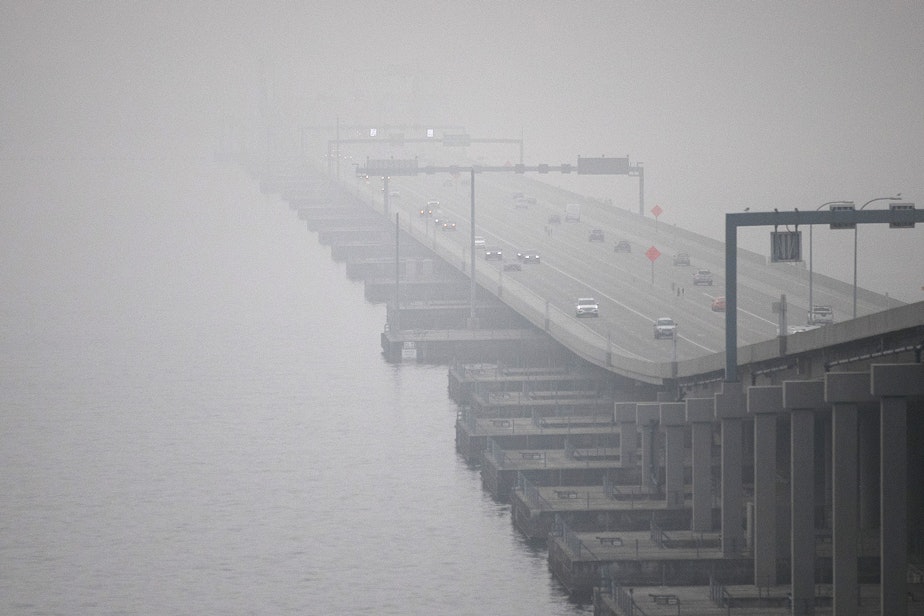
Professor Michael McCann, Political Science
University of Washington
Trump vows to repeal Obamacare, thus removing affordable health coverage for low income workers.
President Trump’s authority over future appointments to the National Labor Relations Board and Equal Employment Opportunity Commission along with nominations to the U.S. Supreme Court will enable him to reverse a host of advances made by the Obama administration on all these fronts.
Trump also promised to undo a host of executive actions by Obama affecting workers, especially in federal contracts and immigration matters. Candidate Trump cavalierly vowed to reduce a wide range of federal regulations, which will result in less safe and healthy workplaces.
For social justice activists in the broad labor community, this prospect is distressing, but it also defines a challenge and an opportunity to point the way to alternative futures.
Professor Robert B. Horwitz, Communications
University of California, San Diego
The financial crisis of 2008 put an exclamation point on 40 or so years of declining wages and growing economic inequality, for which immigrants from Mexico and Latin America were an easy scapegoat.
Since the late 1970s, the Republican Party successfully captured and stoked these anxieties, managing to tie the discontent of the white working class and small business owners and conservative evangelicals to policies largely unconnected to their immediate concerns: deregulation of industry, tax cuts for the wealthy, and the demonization of federal spending for social welfare programs.
For decades a central political question for white people was whether government benefits go to the “deserving” or the “undeserving,” with themselves constituting the former and minorities comprising the latter. In the past, unionism and a growing economy were able to lessen status anxiety; the decline of unions and a weak economy are of course now part of the problem.
If Black people and gays/lesbians and Latinos and others all identify and act politically in group ways, asserting a politics of difference, what are politically unsophisticated white people supposed to do?
They (re)create their own white identity group. And because identity politics feeds on and fuels a sense of victimhood, victimhood becomes the currency of politics. Ergo, white people are now victims.
Trump in particular was able to articulate a version of white populist nationalism.
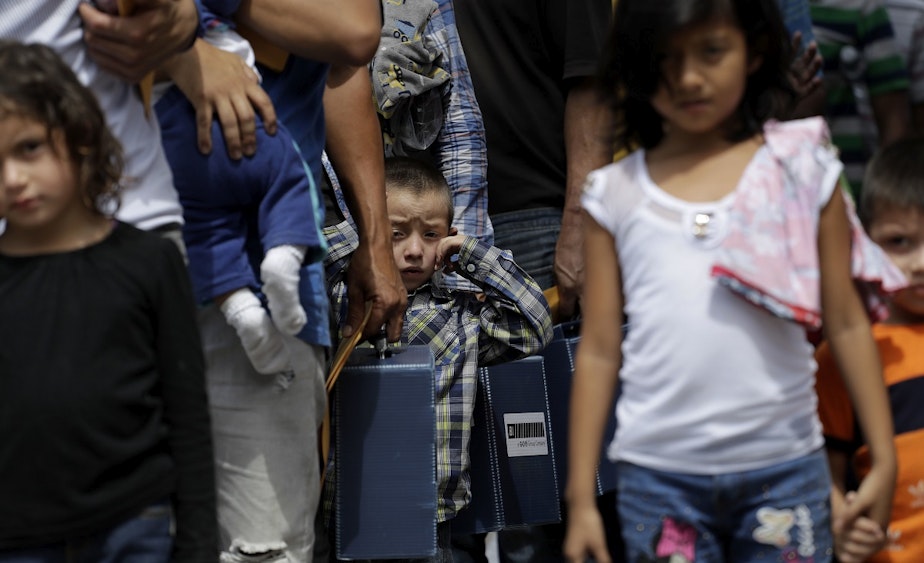
Professor Christopher McKnight Nichols, History
Oregon State University
This election is a harbinger of bad things to come.
Border security is likely to be enhanced and deportations of undocumented immigrants will certainly commence in greater numbers in 2017, even if no large wall is built.
[Hindsight 2020: Beginning in 2017, the Trump administration began separating children from their parents at the Mexican border. Five hundred and forty-five of those parents cannot be reached to be reunited with their children.]
Regarding U.S. alliances and collective security organizations, such as NATO, and hemispheric relations, particularly with Mexico, as well as the future of nuclear nonproliferation, there is much trepidation in the world community. U.S. allies—and even the nation’s own intelligence community—are uneasy about the U.S.’s course as well as its credibility on the world stage. Its commitment to back up past pledges of support to long-standing global friends, as well as to partnerships with even the most lukewarm allies, seems suspect.
The unraveling of trade treaties and accords, some that have lasted more than a generation, as well as recent climate change agreements, the gutting of environmental regulations, and the repeal of the Affordable Care Act, are all within the grasp of the GOP.
There has never been a president like Donald Trump; the U.S. has never vested a neophyte leader with this kind of power: unified one-party government across virtually all-federal and state jurisdictions. History provides no road map except the solace that this too shall pass. We simply cannot know what will come next.
Not anchored to ideology but molded by instinct and convenience, Trump’s agenda combined with the astonishing 2016 ascent of the GOP, legitimizes the racist, sexist, xenophobic impulses and fear-mongering we witnessed in the campaign. If the tone of the campaign serves as any guide to domestic and foreign affairs and political life, Americans are right to fear the future.
Professor Gerard Roe, Earth and Space Sciences
University of Washington
As a climate scientist, I'm appalled and also just plain embarrassed to have an avowed climate-change denier as president-elect.
Beyond the man himself, I’m perhaps more concerned about the potential for unqualified and loosely controlled political appointees to run rampant through the federal government structure, and who seem likely to de-prioritize a whole raft of environmental issues.
Professor David Bachman, International Studies
University of Washington
Relations with China will clearly worsen.
In the short-term, if President-elect Trump follows through with a promise to raise tariffs on Chinese imports to 45 percent unless China stops “manipulating” its currency.
China will not change the way its currency trades against the dollar, and China would retaliate, perhaps by cancelling a series of orders of Boeing commercial jets.
[Hindsight 2020: Both countries imposed tariffs, up to 25 percent on $200 billion in goods.]
Professor Emeritus Stevan Harrell, Anthropology
University of Washington
As progressives’ nightmares shift from what President Trump would do to what President Trump will do, we need to be careful. The lesson of failed predictions looms too large for us to ignore.
He won’t keep all his promises—no candidate ever does—and I don’t expect a wall paid for by Mexico or 11 million deportations or a ban on Muslims.
[Hindsight 2020: As of this writing, 371 miles of wall were built, although just five of those miles are new. The rest of the "new" wall replace existing barriers. Mexico did not pay for the wall.
There have not been 11 million deportations. ICE arrests have been lower during the Trump administration than under Obama, according to Pew. That being said, more family units were apprehended at the border last year than single adults.
There has been a ban on many Muslims.]
Greg M. Epstein, Humanist Chaplain
Harvard University
First, you might think religion will reign supreme under a Trump presidency, particularly Christianity. But don’t be surprised when the coming years bring a continued decline in the kind of conservative, muscular Christianity that was victorious in this election.
Second, we don’t need religion, but we do need community to order to fight bigotry and systemic injustice. We must address our isolation. Cultural institutions of past generations too often left us feeling alone in our houses and cars, TV and radio voices helping us to ignore the threat of nuclear war in the absent-minded company of our nuclear families.
This is how we became demographics to one another. Let us build new communities that reach beyond living as isolated interest groups, as we learn to be flawed people who know one another and care about one another.

